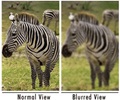
‘The virus when injected into the eyes of mice having retinoblastoma, reduced tumor growth and stopped metastasis.’
Tweet it Now
Researchers estimate that retinoblastoma causes 8,000 cases each year, a figure that represents 11% of all cancers in children under the age of one. Most cases result from inactivation of the gene RB1, which normally plays a critical role as a tumor suppressor. Chemotherapy is the standard-of-care for retinoblastoma, but intensive rounds of such drugs can damage the retina and cause long-term vision problems. In some cases, surgery is needed to remove the eye entirely - an invasive procedure called enucleation that results in loss of vision. Here, Guillem Pascual-Pasto and colleagues investigated an alternative treatment for retinoblastoma named VCN-01, which harnesses a virus that infects and kills cancer cells harboring a dysfunctional RB1 pathway. The treatment was safe in juvenile rabbit models, and injections of the virus into the eyes of mice with retinoblastoma (equivalent to a feasible dosage for human children) curtailed tumor growth, prevented metastasis, and extended the time to enucleation compared to chemotherapy.
Importantly, the authors administered VCN-01 to two pediatric patients with retinoblastoma and observed the virus successfully replicated in tumor cells and did not cause systemic inflammation. Taken together, the findings warrant further development of VCN-01 as a potential treatment for patients with retinoblastoma and RB1 inactivation, Pascual-Pasto et al. say.
Source-Eurekalert














